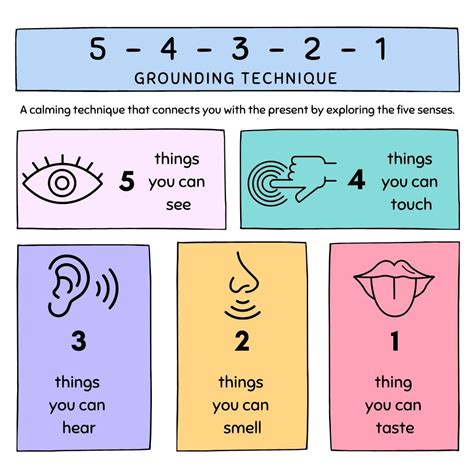Intro
Discover 5 ways to wellness, promoting holistic health through self-care, mindfulness, and stress management techniques, enhancing overall wellbeing and mental fitness.
Achieving wellness is a multifaceted endeavor that encompasses various aspects of our lives, including physical health, mental well-being, and emotional balance. In today's fast-paced world, it's easy to get caught up in the hustle and bustle and neglect our own well-being. However, prioritizing wellness is essential for maintaining a healthy and happy life. By incorporating simple yet effective habits into our daily routines, we can significantly improve our overall quality of life. In this article, we'll explore five ways to wellness, providing you with practical tips and insights to help you embark on your journey towards a healthier, happier you.
Wellness is not just the absence of disease, but a state of complete physical, mental, and emotional well-being. It's about cultivating a sense of purpose, connection, and fulfillment in our lives. By adopting a holistic approach to wellness, we can improve our resilience, increase our energy levels, and enhance our overall sense of well-being. Whether you're looking to manage stress, boost your mood, or simply feel more balanced, the following five ways to wellness will provide you with a comprehensive framework for achieving your goals.
The importance of wellness cannot be overstated. Chronic stress, anxiety, and depression are just a few of the many mental health concerns that can have a significant impact on our daily lives. Furthermore, a sedentary lifestyle, poor nutrition, and lack of sleep can all contribute to a range of physical health problems, including obesity, diabetes, and heart disease. By prioritizing wellness, we can reduce our risk of developing these conditions, improve our overall health, and increase our life expectancy. So, let's dive into the five ways to wellness, exploring the benefits, working mechanisms, and practical tips for each.
Physical Wellness

Some practical tips for achieving physical wellness include:
- Engaging in at least 30 minutes of moderate-intensity exercise per day
- Eating a balanced diet that includes a variety of whole foods
- Getting at least 7-8 hours of sleep per night
- Staying hydrated by drinking plenty of water throughout the day
- Limiting our intake of processed and sugary foods
Mental Wellness

Some practical tips for achieving mental wellness include:
- Practicing mindfulness and meditation on a daily basis
- Engaging in activities that bring us joy and fulfillment
- Developing healthy coping mechanisms, such as journaling or talking to a friend
- Setting realistic goals and priorities to manage stress and anxiety
- Seeking professional help when needed, such as therapy or counseling
Emotional Wellness

Some practical tips for achieving emotional wellness include:
- Practicing self-compassion and self-care on a daily basis
- Developing emotional intelligence by recognizing and understanding our emotions
- Engaging in creative activities, such as art or music, to express and process our emotions
- Building strong, supportive relationships with others
- Practicing gratitude and forgiveness to cultivate a more positive mindset
Social Wellness

Some practical tips for achieving social wellness include:
- Engaging in social activities, such as volunteering or joining a club, to meet new people and develop new friendships
- Practicing effective communication skills, such as active listening and empathy
- Building strong, supportive relationships with family and friends
- Feeling a sense of belonging and community by connecting with others who share similar interests and values
- Being open-minded and accepting of others, regardless of their background or perspective
Spiritual Wellness

Some practical tips for achieving spiritual wellness include:
- Engaging in spiritual practices, such as meditation or prayer, to connect with something larger than ourselves
- Spending time in nature to cultivate a sense of awe and wonder
- Practicing gratitude and appreciation for the blessings and opportunities in our lives
- Developing a sense of curiosity and wonder by trying new things and exploring new ideas
- Cultivating a sense of purpose and meaning by identifying our values and passions
As we conclude our exploration of the five ways to wellness, we hope that you've gained a deeper understanding of the importance of prioritizing your physical, mental, emotional, social, and spiritual well-being. By incorporating these practical tips and insights into your daily life, you can improve your overall quality of life, increase your sense of purpose and fulfillment, and enhance your overall sense of well-being. Remember, wellness is a journey, not a destination, and it's never too late to start making positive changes in your life.
We invite you to share your thoughts, questions, and experiences with us in the comments below. How do you prioritize your wellness, and what tips or strategies have you found to be most effective? By sharing our knowledge and experiences, we can support and inspire each other on our journey to wellness.
What is wellness, and why is it important?
+Wellness is a state of complete physical, mental, and emotional well-being. It's essential for maintaining a healthy and happy life, improving our resilience, increasing our energy levels, and enhancing our overall sense of well-being.
How can I prioritize my physical wellness?
+You can prioritize your physical wellness by engaging in regular exercise, eating a balanced diet, getting enough sleep, and staying hydrated. It's also essential to limit your intake of processed and sugary foods and to manage stress and anxiety.
What are some tips for achieving mental wellness?
+Some tips for achieving mental wellness include practicing mindfulness and meditation, engaging in activities that bring you joy and fulfillment, developing healthy coping mechanisms, and seeking professional help when needed.
How can I cultivate emotional wellness?
+You can cultivate emotional wellness by practicing self-compassion and self-care, developing emotional intelligence, engaging in creative activities, building strong relationships, and practicing gratitude and forgiveness.
What is spiritual wellness, and how can I prioritize it?
+Spiritual wellness refers to our connection to something larger than ourselves. You can prioritize spiritual wellness by engaging in spiritual practices, spending time in nature, practicing gratitude, and cultivating a sense of curiosity and wonder.
